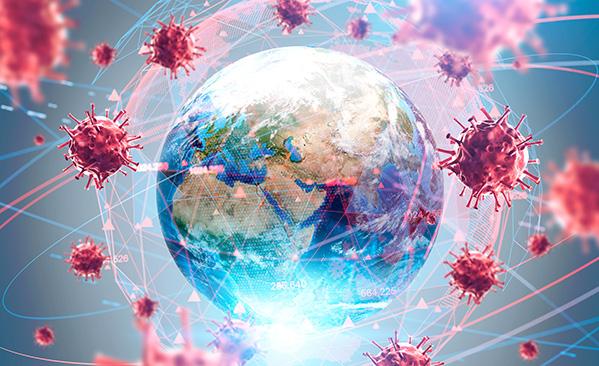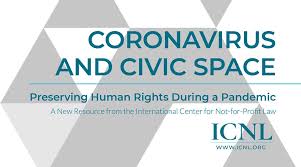 Autocratic and illiberal leaders are using the coronavirus crisis to weaponize insecurity, says journalist and historian Anne Applebaum. She talks to Financial Times’ columnist Gideon Rachman about the threat to democracy as authoritarians exploit public willingness to have freedoms curtailed during the coronavirus crisis.
Autocratic and illiberal leaders are using the coronavirus crisis to weaponize insecurity, says journalist and historian Anne Applebaum. She talks to Financial Times’ columnist Gideon Rachman about the threat to democracy as authoritarians exploit public willingness to have freedoms curtailed during the coronavirus crisis.
Leaders like Viktor Orban in Hungary are “weaponizing this moment of insecurity,” says Applebaum, a board member of the National Endowment for Democracy (NED).
Shaken by an unprecedented peaceful protest movement that has been going on for over a year, the Algerian authorities are capitalizing on the coronavirus outbreak to strike back at civil society and opposition figures in a desperate effort to stifle dissent and end the protests, analyst Dalia Ghanem observes. The arrest and summons of protestors to go to police stations underline that human rights in Algeria are under threat, she writes for @CarnegieMEC.
 Covid-19 will be a test of legitimacy for all modes of state governance, says analyst Bruno Tertrais. Will that mean that it could be the indirect cause of new revolts or revolutions? Probably not in the short term, as societies will be, for several months, too weakened and preoccupied with a possible return to normal life.
Covid-19 will be a test of legitimacy for all modes of state governance, says analyst Bruno Tertrais. Will that mean that it could be the indirect cause of new revolts or revolutions? Probably not in the short term, as societies will be, for several months, too weakened and preoccupied with a possible return to normal life.
The rise of populism could come to a halt, he writes for the Fondation pour la recherche stratégique:
- Firstly because one of its characteristics is the distrust of expertise and institutions. Such distrust had certainly not disappeared at the beginning of April (as the chloroquine controversy, for example, showed). But its possible human and financial costs will certainly be pointed out in the end.
- Secondly, because most populist leaders …….have so far shown a certain inability to be receptive to the immediate concerns of their fellow citizens, and to express the necessary empathy.
 COVID-19 may well not alter – much less reverse – tendencies evident before the crisis, argues Dani Rodrik, Professor of International Political Economy at Harvard University’s John F. Kennedy School of Government.
COVID-19 may well not alter – much less reverse – tendencies evident before the crisis, argues Dani Rodrik, Professor of International Political Economy at Harvard University’s John F. Kennedy School of Government.
Neoliberalism will continue its slow death. Populist autocrats will become even more authoritarian. Hyper-globalization will remain on the defensive as nation-states reclaim policy space, he writes for Project Syndicate. China and the US will continue on their collision course. And the battle within nation-states among oligarchs, authoritarian populists, and liberal internationalists will intensify, while the left struggles to devise a program that appeals to a majority of voters.
The COVID-19 pandemic has something for everyone. Nobody is immune to the Rorschach test—and certainly not big-picture thinkers who seem convinced that the pandemic is a turning point, notes analyst Dalibor Rohac.
“This is not a temporary rupture in an otherwise stable equilibrium,” writes John Gray in an intriguing piece in the the New Statesman. “Yes, the storm will pass, humankind will survive, most of us will still be alive—but we will inhabit a different world,” Yuval Noah Harari writes in a widely quoted article in the Financial Times, in which he outlines the stark choices facing humankind after the crisis: between the surveillance state and citizen empowerment, political parochialism and global cooperation.

POMED
The effects on the human psyche and our shared culture are even harder to pin down than the economic effects, he writes for the American Interest. This may be yet another step in the direction of the loneliness crisis, with corrosive political effects. Counterintuitively, though, the ongoing collective “mobilization” in the form of individuals staying at home can provide a shared experience that will cut through ideological and partisan lines and reinvigorate our civic interactions once the era of self-isolation ends.
But there are good reasons to doubt Stephen Walt’s thesis that “Covid-19 will also accelerate the shift in power and influence from west to east. The response in Europe and America has been slow and haphazard by comparison [with China, South Korea and Singapore], further tarnishing the aura of the western ‘brand’”, Tertrais adds.







